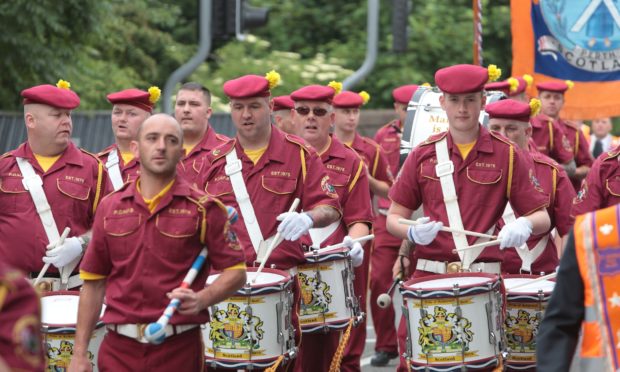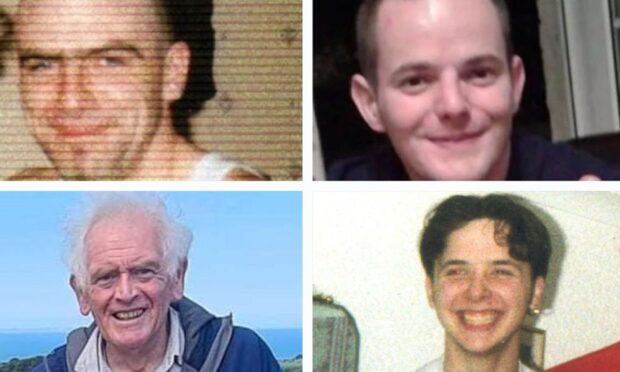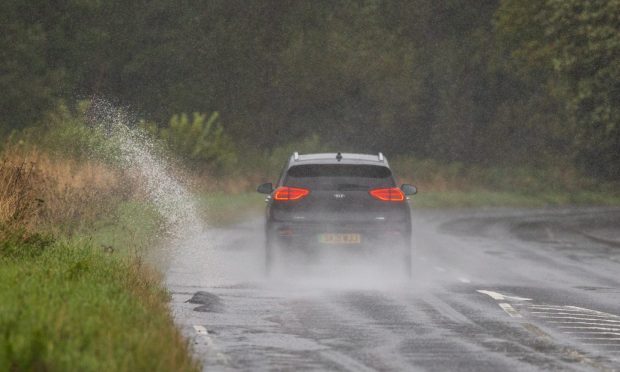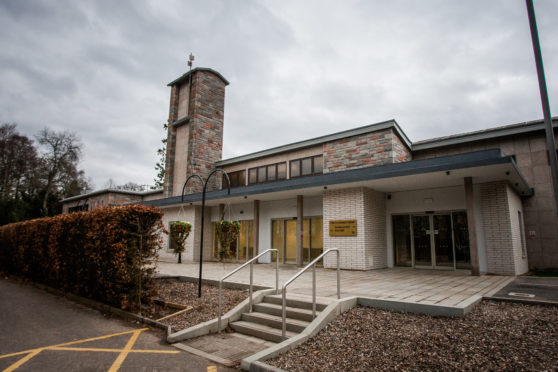The Orange Order has been given the go-ahead to march through a Highland Perthshire town, despite fears it will threaten “inter-faith relations”.
Licensing chiefs unanimously agreed to allow next month’s procession in Dunkeld which organisers say will commemorate the 330th anniversary of a key Jacobite battle.
David Walters, of the Colonel Cleland Memorial District Number 65, addressed members of Perth and Kinross Council’s licensing committee on Thursday and warned that refusing the march would be a discriminatory breach of human rights.
Several objectors had called for the procession to be blocked, claiming a low-key annual ceremony to mark the Battle of Dunkeld had been “hijacked” in recent years by the Loyal Orange Institution.
Councillors were told at the committee meeting that last year’s procession saw members of Orange Orders bussed in to the town from throughout Scotland.
Historian John Gilruth, who has researched and written about the 1689 battle, spoke out against the march.
“I am aware there is considerable unhappiness about this in Dunkeld,” he told the committee.
He said: “This is a march, not simply a commemorative service. It feels like some kind of victory march or triumphalist celebration.
“Dunkeld is a very lively, ecumenical community where people of all religions and none work together. I would suggest that the hallmark of Dunkeld was its community, ecumenical approach.
“If this genuinely was a commemoration, I don’t think people would mind. Its the marching down the street that people find really quite distasteful and difficult.”
Mr Walters said the Battle of Dunkeld was not widely recognised until recent “input” from the Orange Institution.
“This was the end of the Jacobite uprising and it leads to where we are now in society, and the way our governments operate,” he said.
“It basically secured Scotland for King William, which is obviously significant to the Orange Institution.”
Mr Walters read out a six-page legal statement, explaining why he felt the Order had a right to march.
Asked by committee convener Chris Ahern if it was necessary to read out all six pages, because councillors had already read it, Mr Walters replied: “I’m just conscious that other people here today haven’t seen this submission and I want to inform and educate them on the rights, so that we don’t have a situation like this again.”
He added: “What objectors are asking here is that Perth and Kinross Council restrict the human rights of the Orange Order, because of thematic objections to the message the objectors perceive that the marches wish to project. This, I submit, would be a discrimination and a violation of Article One of Protocol 12 (of the European Convention of Human Rights) and the committee is obliged to reject it on that basis.”
Police Sergeant Ian Taylor told the meeting: “We don’t have any legal grounds for any objections.”
After a short, private discussion the committee ruled to “accept notification” of the procession, which will take place on Sunday August 18.










